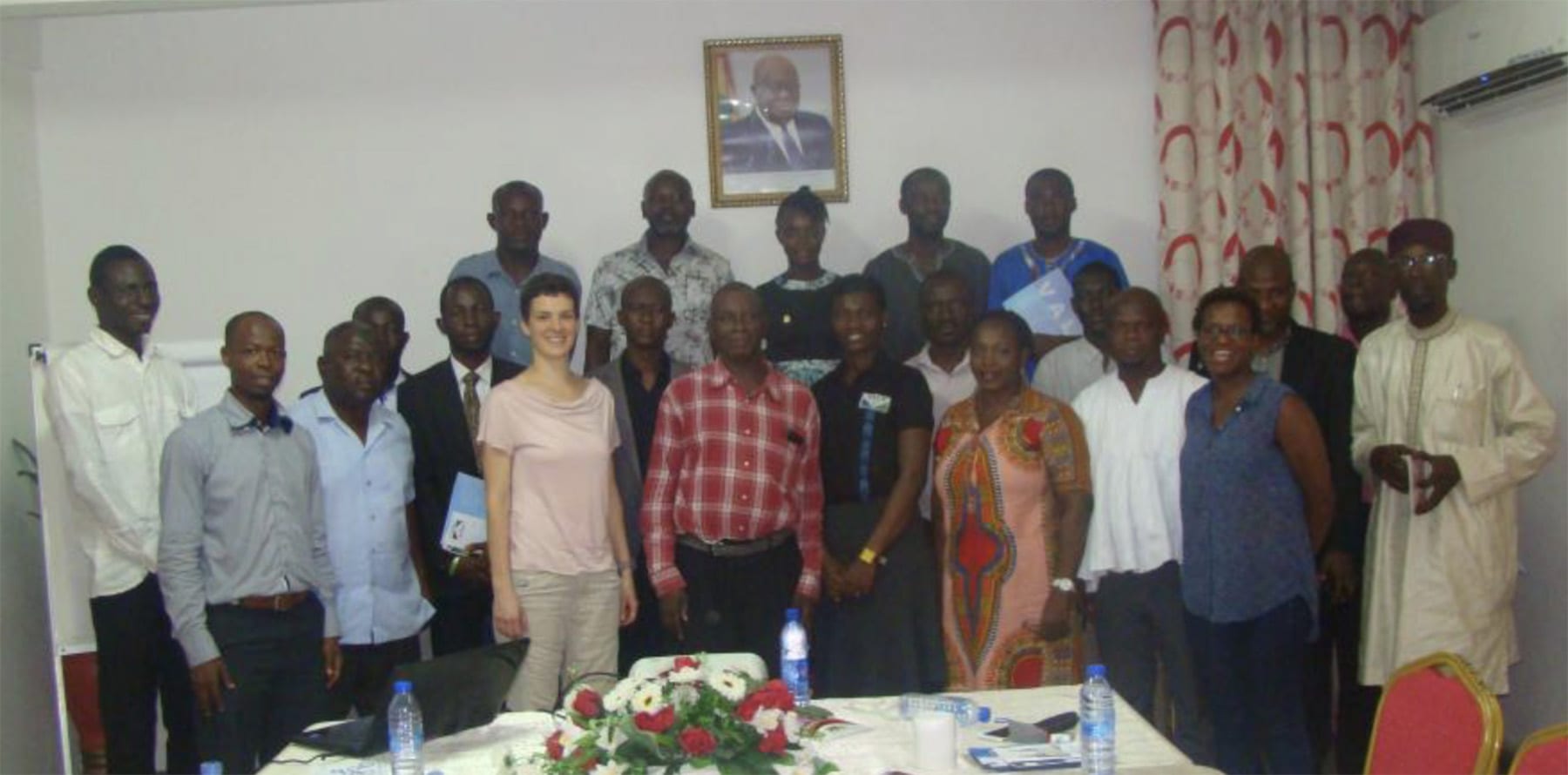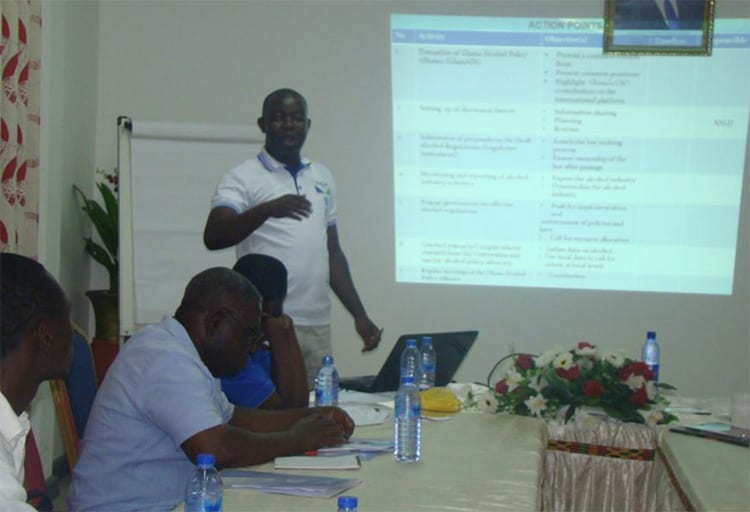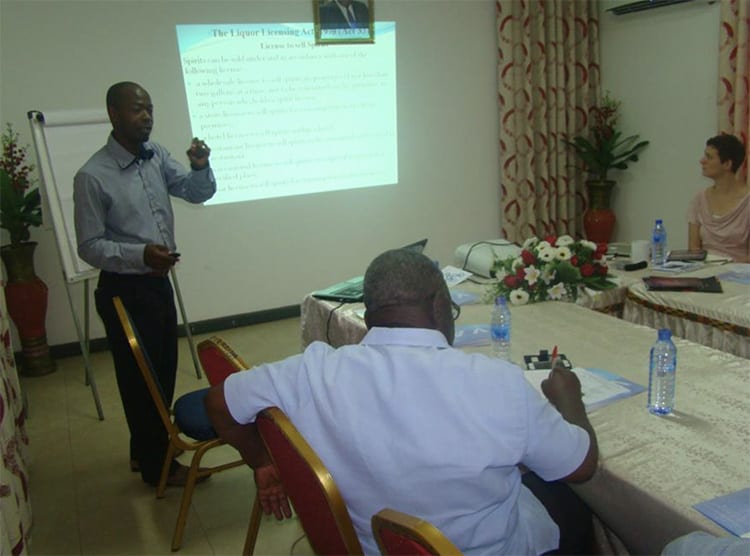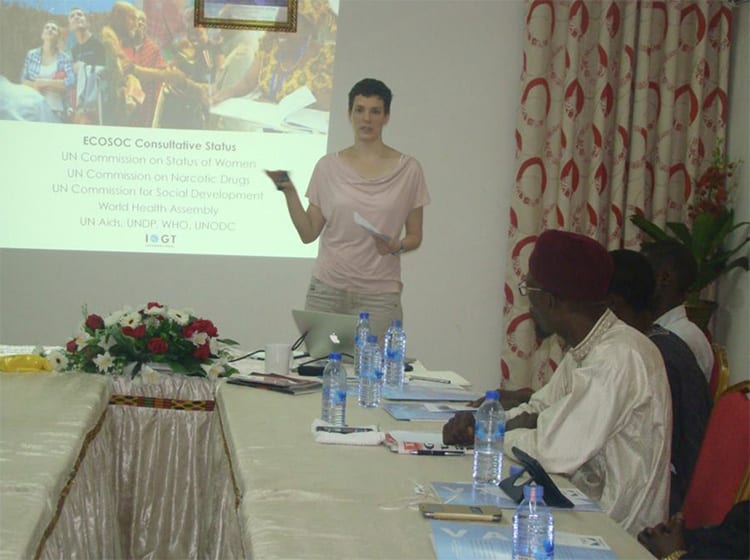Ghana: Civil Society Forms GhanAPA
The Vision for Alternative Development (VALD) in collaboration with IOGT International organized a civil society workshop for a diverse group of civil society organizations aiming to explore the current alcohol situation in Ghana and to establish the links between alcohol and the Sustainable Development Goals, delve into alcohol industry strategies, and lay the groundwork for the formation of the Ghana Alcohol Policy Alliance.
The workshop was attended by an impressive number of NGOs, covering different aspects of developmental issues and illustrating the need for joint action to prevent and reduce alcohol harm in the country:
- Planned Parenthood Association of Ghana
- Women and Children Health Advocacy Group
- Ghana News Agency
- Media Alliance on Tobacco Control
- Action for Integrated Development
- Office of the National Chief Imam
- Ghana Muslim Mission
- Institute of Leadership and Development (INSLA)
- Federation of Youth Clubs
- Hope for Future Generations
- Baraka Policy Institute
- Community Health Support Team
- Christian Council of Ghana
- Ghana Organization on Foetal Alcohol Syndrome
- Defense Against AIDS, Poverty and Underdevelopment, and
- The Foundation for Future Christian Workers International.
The workshop was covered in local press, attracting headlines such as ‘VALD Ask Gov’t To Regulate Alcohol Use In Ghana’ and ‘NGO advocates effective alcohol control in Ghana’.
Workshop highlights
In his welcome address, Mr. Issah Ali (Executive Director of VALD), explained that the current consumption trends and inadequate regulation of alcohol marketing are a source of grave concern for public health and sustainable development.
Mr. Labram Musah (the Programmes Director of VALD) went on to provide context and discuss the key provisions of the Ghana National Alcohol Policy (NAP). He explained that there are currently many scattered laws, regulations, and policies on various aspects of alcohol control. Consequently, he argued for the need to pool all these and other policies into one document. He stressed that several legislations are currently in existence, but that they are not comprehensive and enforcement has posed challenges – highlighting the need for a central coordinating body to ensure implementation and enforcement.
Mr. Musah went on to explain how the industry has employed many strategies and tactics in advancing sales, at times by means of corporate social responsibility (CSR) initiatives. The following captions and headings were among those cited as strategies to champion the industry agenda:
- “Empowering the Ghanaian Beverage Industry through Recognition: The Mission Of Ghana Beverage Awards”
- “Prez Mahama inaugurates Kasapreko Company’s bottling plant”
- “Kasapreko supports sanitation campaign“
- “Guinness Ghana Breweries Limited responds to water crisis at KATH”
He added that despite this trend, there has also been some level of support for alcohol control measures in the same media channels. The following were presented as some positive news in favor of alcohol control and public calls to regulate the alcohol industry:
- “Parliament denounces advertisements on alcohol”
- “MP calls for law to regulate alcoholic adverts”
- “National policy to regulate alcohol use launched”
- “Media tasked to support food and alcohol advertisement laws”
Mr. Musah argued that countries have a responsibility for formulating, implementing, monitoring, and evaluating public policies to reduce the harmful use of alcohol. He urged all those present to call on the government to enact appropriate policies to
- reduce driving under the influence of alcohol
- reduce demand through taxation and pricing mechanisms
- raise awareness of public health problems caused by alcohol; and
- ensure support for effective alcohol policy measures.
Kristina Sperkova, President of IOGT International, followed by illustrating the pervasiveness of alcohol harm in its economic, social and democracy and public health dimensions and with the fact that every ten seconds one person dies due to alcohol.
She stressed that Big Alcohol (retailers, producers, advertising agencies, and others such as distributors) are aggressively marketing their products and offering CSR to increase public acceptance. There is evidence to show that Big Alcohol and Big Tobacco work closely together, share information, share similar concerns, and use similar arguments to defend their products and prevent or delay evidence-based public policy measures.
She concluded by outlining the strongest, most cost-effective strategies include:
- restricting the affordability of alcohol, through taxation;
- restrictions on the physical availability of the alcohol through decreasing outlet density and promoting more alcohol-free environments especially for children and youth; and
- alcohol marketing restrictions, e.g. bans on alcohol advertising.
- Issah
- Labram
- Kristina
Workshop results: groundwork for GhanAPA formation

Inspiring conversations and grave concern about the unethical business practices of the alcohol industry were themes of the workshop, and so was the spirit of activism. The problems are big; the opponent is big and rich; but big is also the conviction that change is possible and that together civil society can succeed. In light of new knowledge and with this spirit, the groundwork for forming the Ghana Alcohol Policy Alliance was laid.
The workshop resolved to form and strengthen the Ghana Alcohol Policy Alliance (GhanAPA).
It was also agreed to submit proposals on the Draft Alcohol Regulations (Legislative Instrument), to continue to monitor and report on alcohol industry activities in Ghana, to engage government officials, to conduct and compile research for use in advocacy, and to raise public awareness.
Source Website: Brenda's Blog "Advocacy And Member Visit In Ghana"


